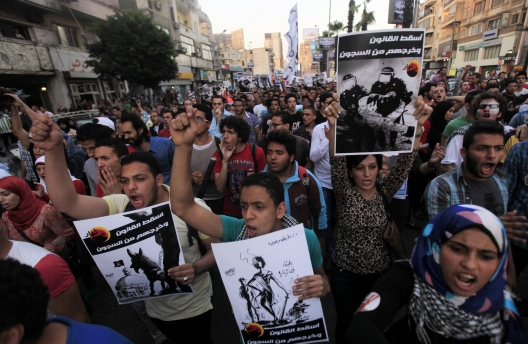 Bear with me a moment… the only thing that helps me deal with the absurdity of the situation we are in is distancing myself from the details, and thinking about their underlying vision, interests, and goals.
Bear with me a moment… the only thing that helps me deal with the absurdity of the situation we are in is distancing myself from the details, and thinking about their underlying vision, interests, and goals.
Execution is the most extreme form of punishment within the legal framework of some states and societies, and forbidden by other states and societies. It is a punishment that strips an individual of their right to life, approved by law in some states and societies for murder, high treason, carrying arms, and other crimes. Meanwhile, the laws of other states and societies forbid capital punishment, instead using prison sentences, or stripping an individual of their freedoms for long periods of time. It is the most well known form of punishment, dating back to ancient times and the Middle Ages, propagated by dictators and sometimes by religious authorities to get rid of their opposition, dissidents, and anyone who despised them. It is punishment still used in modern times by some non-democratic regimes and individual rulers, to wipe out their opposition, dissidents, and anyone who despises them. It is a form of punishment that I oppose on philosophical, ethical, and humanitarian grounds; instead, I support long prison sentences in cases of murder, high treason, carrying arms, and other crimes, after fair and expedient due process. I oppose it on philosophical, ethical, humanitarian, and political grounds when it is used as revenge, to suppress and wipe out the opposition. It is a form of punishment that reached levels of unreasonable madness under past dictatorships, with mass executions, gas ovens, and entire groups of people wiped out under Nazism, Fascism, and Stalinism, as well as during military fascism in Latin America, Africa, and Asia. Today in Egypt, we must oppose this madness, and fight back against the evidence of descent into madness coming to us from Minya, my hometown.
Banning a group is a form of punishment that nullifies their existence, one which systems of government or authorities have used against political parties, social movements and organized popular groups, in varying conditions. It is a form of punishment that is not used against political parties and social movements in Saudi Arabia, for example; not because parties and movements are welcomed there, but because forming such groups is criminalized, prohibited in full. It is a form of punishment that democratic systems of government who are committed to the rule of law have imposed on parties, movements, and organized groups when they violate the law, after fair and expedient due process. It is a punishment imposed when they are not committed to peace, or are embroiled in financial or political corruption, or oppose the values and principles of democracy. It is a form of punishment intentionally used by undemocratic systems of government who are concerned only with the appearance of rule of law. They use it to target opposition parties, movements, and groups who stand against them, who refuse to become involved in violating the law, who refuse to disregard the conditions for peace, and who are committed to democratic values. It is a form of punishment that nullifies their existence, one used by undemocratic regimes and by individual rulers seeking to curb, suppress, or wipe out their opposition, by those seeking to impose one voice, and one opinion on the authority of that individual or the elite that has always threatened the country or society’s unity. During the current conditions in Egypt, it is a form of punishment that certain groups deserve, after fair and expedient due process—groups who have broken the law, or who have practiced and justified violence, as well as groups embroiled in financial or political corruption. Yet it is a repressive form of punishment when used against the April 6th Movement, aiming to wipe them out and close in on their members, some of whom today are imprisoned, arrested, or detained. It is a form of punishment that, when imposed here in Egypt, points to how narrow-minded the ruling powers are, and to their propensity toward repression, prohibiting, exclusion, and exclusivity—instead of building consensus, partnership, and positive engagement, under a commitment to peace, non-violence, safeguarding rights and freedoms, the values of democracy, and the rule of law.
I am tired of waking up exhausted, of absurd scenes haunting me in the news, of the constant attempts to slander me and call me a traitor for standing firmly by my convictions, for straying from the flock.
Tomorrow there will be a new margin for democracy in Egypt.
Amr Hamzawy joined the Department of Public Policy and Administration at the American University in Cairo in 2011, where he continues to serve today. He is a former member of parliament, former member of the National Salvation Front, and founder of the Freedom Egypt Party.
This article originally appeared in Shorouk
Image: Photo: Members of the April 6 movement and liberal activists shout slogans against a law restricting demonstrations as well as the crackdown on activists, in front of El-Thadiya presidential palace in Cairo April 26, 2014. REUTERS/Amr Abdallah Dalsh
